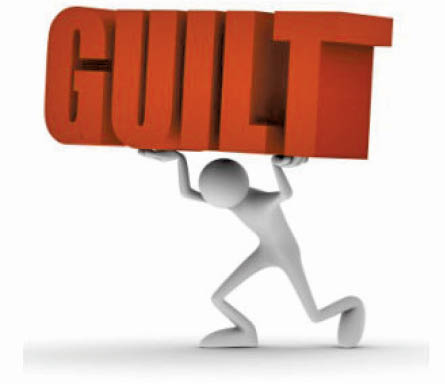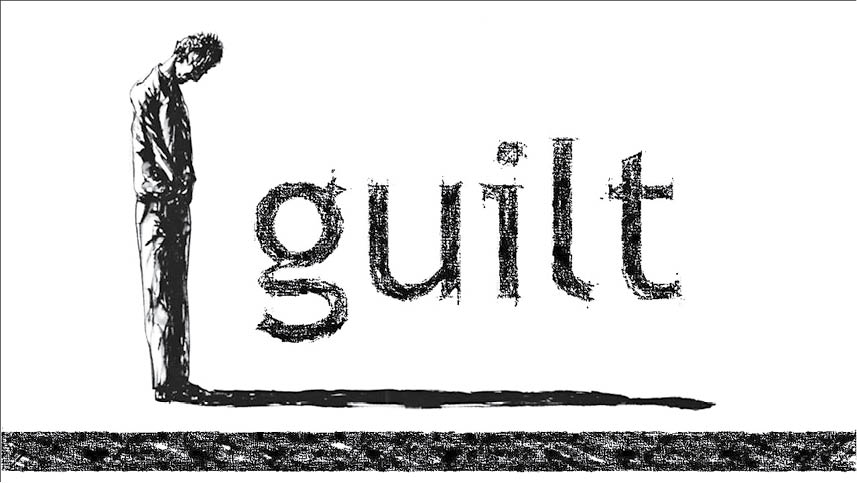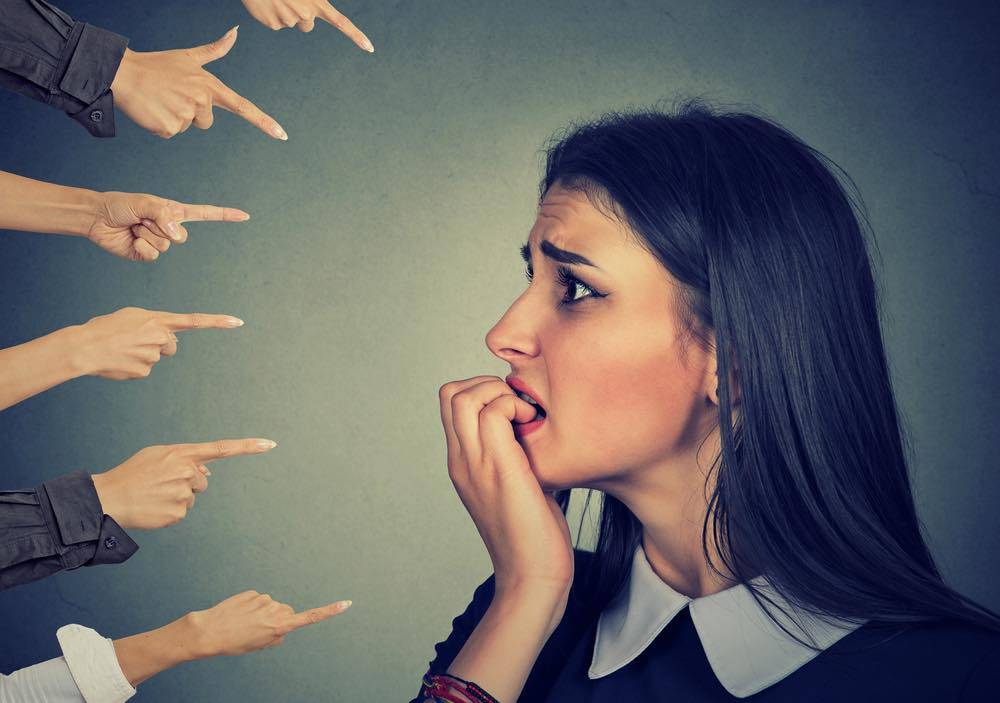
Guilt is a very strong emotion that often rules our lives, relationships and us in general. We may suffer from it without anyone saying anything to us (due to upbringing perhaps) or due to others, making us feel responsible for a given situation. This is a feeling or emotional state experienced when one feels that one has wronged someone. When one feels responsible for the cause of another’s misery, misfortune, harm, or anything negative.
People hold themselves guilty for many reasons:
- They may want to do certain things but are unable to do so
- Feel they have done something that they should not have
- Feel that they have done something when actually they have not
- Feel they can/ could do much more than what they actually are doing
- Feel bad because they are doing better than someone else
- Their inner need to reach out and help others no matter what is much more than required

How often do we play the guilt card knowingly or unknowingly with others? Especially when we wish to get something done. Grandparents, parents, spouses, siblings, friends, colleagues all use guilt to get their work done or in an attempt to convince someone about something they think is right. Guilt is a very strong tool when it comes to subtle arm twisting or blatant in your face order, control or command.
We are often made to feel guilty thanks to family members who use the emotional guilt card. Not being dutiful, being selfish, uncaring and heartless. Spouses may accuse as being insensitive, not loving and understanding, friends accuse another of not being a good friend and being self-centred. Colleagues may speak of you not being a team player, being unhelpful and mean. And the list goes on. Before you realise it you have been roped into the blame game. People start making you feel as if things are going wrong because of you and that you are cause of others’ suffering. Basically they want you to feel bad and get convinced that you have been wrong. The purpose behind this would be for others to try and fulfil their personal agendas.
If you are made to feel guilty, it is not about you but the other person. When you spontaneously feel guilty, it means that you need to take action or if unable to do anything perhaps let things be for the moment.
Deal with guilt in a rational and logical manner that makes one see reason and shows the bigger picture.
Start by:
- Stepping out of the situation. Look at the entire scenario as if you are watching it happen in front of you. Just observe. Distance yourself from it and see someone else in your place. Then decide what needs to be done.
- Be proactive instead of just wishing things would be different. Accept that actions will make things better than just remaining in a space of guilt.
- If you cannot do what you feel needs to be done, then either try and find another solution to it or tell yourself to leave it for now.
- Do not let others make you feel guilty. Ask yourself if the situation really warrants your feeling guilty or not. You be the best judge. If it feels right do it. If you feel you should not do it in spite of what others tell you, then take your time to decide.
- People will stop being sympathetic beyond a point as they would rather you acted rather than just ranted. So please stop wallowing.
- Be realistic and stop being the martyr. Do what you can and move on, or don’t.
- Take responsibility for your actions. Do not indulge in blame games as these worsen situations.
Living a guilt free life is not possible, but managing guilt and understanding what lies beyond the guilt will make you get in touch with emotions in your life better. Ask yourself what it is that you are really feeling behind the ‘garb of guilt’. What do you actually feel and where does that feeling take you? This will take you down to the crux of the matter. Guilt can sometimes be a good tool to understand yourself better, exploring new insights into situations. Search yourself deep for true answers. This will help you evolve and know yourself better.
Dealing With Guilt Using Visualization:
Take a few deep breaths and calm yourself first. Think of the situation that’s inducing guilt in you. In your mind, see it all getting better. You can also visualize the person that you may wish to speak with and see yourself saying what you need to. Let the person understand where you come from. Focus on positive energy and feel good when you imagine this.
Affirmation to be repeated:
“I live a carefree and happy life. I am proud of myself and take responsibility for everything that happens in my life.”
.
- Happy In Or Happy Out? - 10 August2024
- Look No further: The Five Elements Lie Within You - 16 March2024
- Thodi Si Lift Karade! How To Up Your Spiritual Quotient!! - 18 March2023
